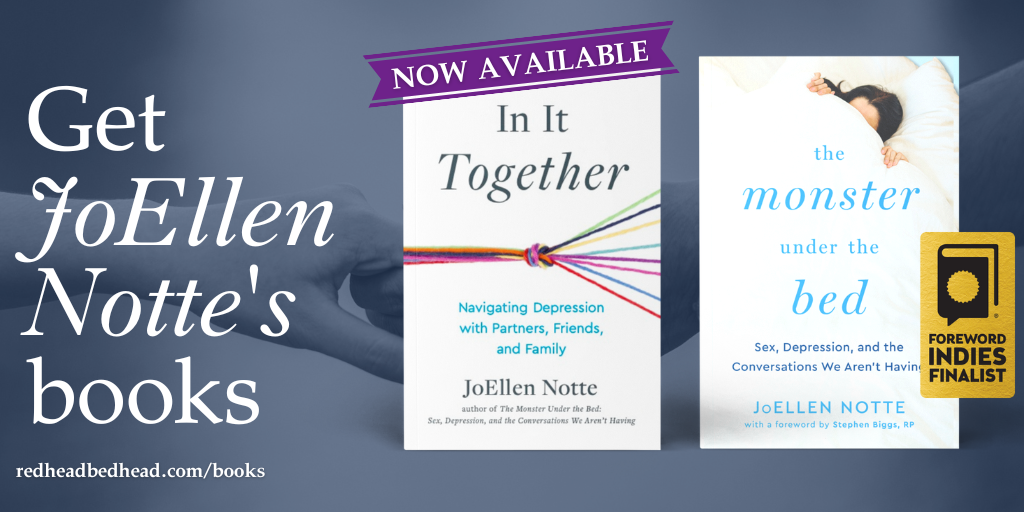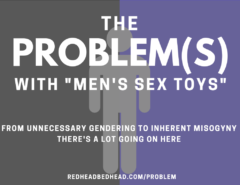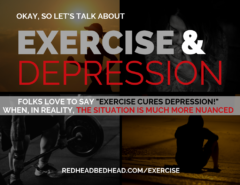This post is the result of Crista Anne and my endless conversations about what we love and hate about the conversations coming out regarding sexuality and depression. After the glorious response to my post: 5 Tips For Writing About Sex & Depression we decided to expand upon that and share our thoughts with the world.
Yes, this is what it will look like when we take over the world, so, you know, get ready for that.
PSA: An Open Letter to Folks in the Sex & Depression Conversation
By JoEllen Notte & Crista Anne
It’s heartening to see so many people talking about sex and depression, sharing their experiences, normalizing this topic that can be so scary and isolating for so many people – that is amazing. We are both thrilled by the increase in discourse!
What is a bit alarming, however, is the practice of drug-promoting. Let us explain…
We often say that when we talk about sex and depression we are standing at the intersection of two taboo topics. When we decide to talk about sex on the internet we have a huge responsibility to our audience. Unlike if we were writing about, say, fashion, we are dealing with a very vulnerable audience, an audience that is looking to us for the answers to questions they are afraid to ask. We have a responsibility to not lie to them. A responsibility to not make them feel bad about themselves (the world does enough of that already), to do our homework so we can provide accurate information, to be good at our jobs, to be worthy of their trust. When we decide to add mental health to the conversation we are increasing our responsibility exponentially because the vulnerability of our audience increases. Keeping that in mind is vital.
It may seem like no big deal to say “I fixed my problem with this drug” but let’s open that up a bit.
Who are you saying that to? You are saying that to a reader who is dealing with sexual dysfunction brought on by depression and/or its treatment – someone who is looking for answers. You are saying it to someone who feels broken. You are speaking with authority. You have a shiny website. Most importantly you claim to have solved the very problem they have – you have their answer. Now they think they need to go get the drug you have recommended.
So what happens when their insurance doesn’t cover that drug and they, who are already feeling like life is beating them down, are dealt another blow? What happens when they go to their doctor and she tells them that drug is completely wrong for them because it doesn’t fit their symptoms and now they feel more powerless than they did before? What happens when when they take that drug and it doesn’t work for them leaving feeling even more broken than when they came to your site to begin with? What happens then? These are all the things you need to think about before you announce that you have the “answer” with a brand name and a dosage amount.
Similarly, the practice of comments field drug suggesting (ex. “Why don’t you just take ______?” “The only good thing for that is _____.” or even “Just switch drugs!”) is problematic.
Why? Because it calls into question the ability of the person dealing with depression to make choices about their own body. It adds another person telling them what to do. It takes away a part of their bodily autonomy. Depression robs people of their bodily autonomy, their agency, in a huge way – it acts like an unwanted parasite on a host body- and by telling people who may be happy with their drug apart from this one side effect that (duh!) they just need to switch you are stomping on what little control they have left. Further, as all our bodies are different, you have no business telling them what drug will work for them because you do not know – what worked for you (or your sister, or your friend, or whatever) may not work for them at all. Finally, when we do things like this on the internet we are doing three things:
- Contributing to a confusing conversation where (often) multiple people are offering differing accounts of what THE answer is. This is unhelpful
- Announcing an answer to all the world – this isn’t the same as making a suggestion to your friend. This is the internet- you are making this suggestion to EVERYONE.
- Shaming the person you are making the suggestion to. Yes, yes, you didn’t intend to. You thought you were helpfully passing on the name of something you have heard helps but people with depression get hundreds of those suggestions and eventually they all start to sound like “YOU’RE DOING IT WRONG!” “WHY AREN’T YOU WORKING HARDER TO FIX THIS?!” “YOU HAVE TO TRY!”
The thing is, this is hard, important, necessary work and it comes with ethical standards that are higher than other forms of sex writing. You can’t review a drug like you do a vibrator. This can’t be a topic one jumps into because it’s hot and they want to capitalize on a hashtag – you have to be ready to work on this when it isn’t trending. This is hard, important and necessary work and when one person handles it indelicately it costs many of us the trust of the world – trust we have to work on building back up. We have to, en masse, accept the responsibility that comes with opening up this conversation. This is hard, important, necessary work and we’re thrilled to be doing it together.
-Crista Anne & JoEllen Notte









